Perceptions of the importance of registered nurses in ensuring the quality of colonoscopies
Registered nurses have several key roles that have a bearing on quality. They practice professional healthcare, are skilled in handling technical equipment and participate in interdisciplinary cooperation.
Background: A colonoscopy is an examination of the entire colon using a colonoscope. It is considered to be the best method for identifying diseases in the colon and performing treatments such as polyp removal. A colonoscopy is performed by an endoscopist, usually a doctor, in close cooperation with an assistant, who is an RN (registered nurse) in most cases. Traditionally, the focus has been on the importance of the endoscopist in ensuring quality. Little attention has been paid to the RN’s role in this context.
Objective: The objective of the study is to contribute to the evidence base for decisions on developing specific quality indicators for nursing assistance in colonoscopy procedures. The endoscopist, the RN and the patient are all directly involved parties in a colonoscopy. We wished to explore these groups’ perceptions of the importance of RNs in ensuring the quality of colonoscopies.
Method: We selected an exploratory, qualitative design. The data were collected from three focus groups, who consisted of RNs, endoscopists and patients respectively (N = 17). The sample was strategic for achieving a high degree of information strength. The data was analysed using thematic analysis.
Results: During colonoscopies, RNs have a caregiver role in addition to being part of an interdisciplinary cooperation. The caregiver role encompasses patient care, providing the patient with information, technical skills and the handling of technical equipment, assessing pain and the need for analgesics, as well as behaviour and attitude. Interdisciplinary cooperation is comprised of team thinking, assisting the endoscopist, communication and understanding of roles. The informants highlighted in particular that several of the quality indicators can only be achieved through close cooperation between RNs and endoscopists.
Conclusion: The study indicates that RNs have several key roles in colonoscopy that are perceived to have a bearing on quality. They practice nursing by providing professional care, having skills and competence in handling technical equipment and participating in interdisciplinary cooperation. The quality of a colonoscopy depends on interdisciplinary cooperation. This health care service is carried out by a team, not by an individual or an individual profession and, hence, in coloscopy, the RN is ‘more than just a helper’.
Introduction
A colonoscopy is an examination of the entire colon using a colonoscope, which is a flexible instrument with a camera at the end. It is the best method for identifying diseases in the colon and performing treatments such as polyp removal (1).
Each year, 100 000 colonoscopies are performed in Norway (2). A substantial increase is expected in coming years, due in part to the introduction of a bowel cancer screening programme and to the increasing number of older people in the population (1). Internationally, RNs are increasingly performing colonoscopies (3).
In Norway, a colonoscopy is performed by an endoscopist, usually a doctor, in close cooperation with an endoscopy assistant, who is an RN in most cases. RNs carry out patient care and provide technical assistance during diagnostic and therapeutic colonoscopies. Traditionally, colonoscopy training has been relatively unstructured, but it has now been formalised to a greater extent, for example, under the auspices of the Endoscopy School. This school follows the pedagogical principle ‘train the trainers’, and the target group includes both doctors and RNs with clinical experience (4).
Quality improvement is a statutory requirement that is vital for achieving a high quality in the health service (5). The Norwegian colonoscopy quality assurance register (Gastronet) was established in 2003 to measure and improve the quality of endoscopies (6).
Data are registered here in relation to a range of established quality indicators, such as the extent to which the entire colon is examined (caecal intubation rate), the percentage of colonoscopies in which at least one polyp is found (polyp detection rate), level of pain, bowel preparation quality, complication frequency and patient satisfaction (7, 8).
Gastronet’s database contains information about quality of care, both in relation to individual endoscopists and RNs, and to gastroenterology departments that report in their own data (6). Studies show that examination quality varies in Norway (7, 9–11). Any unwarranted variation in quality is unfortunate, and a low percentage of colonoscopies in which adenomas are detected (adenoma detection rate) and incomplete examinations are associated with an increased risk of cancer development (12).
A Norwegian study investigated the variation in caecal intubation rate, polyp detection rate, patients’ level of pain, the use of analgesics and satisfaction with information between endoscopy assistants (13).
The study found that there was little variation and no correlation between experience or procedure volume and quality. The authors pointed out that quality indicators should be developed that measure the work of assistants more accurately. Several international studies have shown, however, that the RN’s role and experience in assisting in colonoscopies can have a bearing on quality. A meta-analysis from 2020 showed that the polyp detection rate increased when an RN assisted in the colonoscopy (14–16).
In order to develop specific quality indicators to measure the special contribution of RNs to quality in colonoscopies, it is necessary to elucidate the RN’s role in this context.
Objective of the study
The objective of the study is to contribute to the evidence base for decisions on developing specific quality indicators for nursing assistance in colonoscopy procedures. The endoscopist, the RN and the patient are all directly involved parties in a colonoscopy, and we wished to explore these groups’ perceptions of the importance of RNs in ensuring the quality of colonoscopies. Therefore we asked the following two research questions:
- How is the RN’s role in colonoscopy perceived?
- In what way is the RN seen to contribute to the quality of a colonoscopy?
Method
The study has an exploratory, qualitative design, and the data were collected using focus groups. This design was selected because we wanted to obtain the participants’ attitudes, experiences and views as they came to light in group discussions (17).
Sample and recruitment
The participants were strategically recruited so as to include patients, endoscopists and RNs who were well-grounded in the topic (18).
We recruited patients via the national association for digestive diseases and invited patients who had undergone several colonoscopies to participate in the study. The heads of six gastroenterology departments were asked to identify endoscopists and RNs who had worked in the field of colonoscopy for at least two years, and who had a particular professional interest in the topic and/or relevant leadership roles. They were invited by the first author.
Data collection
We collected data in the period June – August 2018. We conducted three focus groups. RNs, endoscopists (doctors) and patients were divided into individual groups to avoid professional power dynamics and status hierarchies from inhibiting discussion in the focus groups (19). In this way, we sought to ensure that there was a safe atmosphere that promoted an open discussion.
We used a semi-structured interview guide (Table 1) based on existing literature on the role of RNs in colonoscopy procedures (4, 14–16). The overarching themes were discussed by all of the focus groups, but the following-up questions varied on the basis of what the participants said. The focus groups had a duration of 90 minutes and were led by the first author. We made audio recordings that were transcribed verbatim.
Data analysis
The data were analysed using six-step thematic analysis. First we read through the data and then we coded it into meaning units. Next, we identified the main themes, which we grouped and regrouped (20). Table 2 shows an example of the steps in the analysis. The first author carried out the analysis under the guidance of both co-authors.
Ethics
The study was approved by the Norwegian Centre for Research Data (project number 60819), and it was reported to the data protection officer at Oslo University Hospital. The participants gave their informed consent. Personal identifiable information was de-identified and stored in a secure area according to the guidelines.
Results
The sample consisted of 17 participants: five endoscopists, six RNs and six patients. Both genders were represented in all groups. The endoscopists and RNs were aged between 30 – 60, and were recruited from all four hospitals in the Oslo region. All of them had a minimum of two years’ experience in colonoscopy procedures, while most of them had much longer experience.
Half of the patients had undergone five colonoscopies, and the remainder had undergone fifteen or more. The study’s findings are presented in more detail below and summarised in Table 3.
The RN’s caregiver role
In all of the focus groups, the RN’s caregiver role was discussed. The study participants highlighted the importance of the RN seeing and caring for the patient’s needs, and having the knowledge and skills to provide the necessary care. Both the endoscopists and the RNs emphasised that caring for the patient included clinical observations.
The patients discussed what they called ‘professional nursing care’. They expected ‘to be cared for’ and ‘attended to’. Several of the patients felt that it provided a sense of security when an RN ‘radiated professional authority’, and showed that ‘they know how to do this’. The patients understood professionalism as meaning that an RN has special theoretical and practical knowledge that has been acquired through training:
‘They can’t just put a nursery school teacher in the room to provide care. That isn’t the kind of care I need’ (patient).
Providing accurate and reliable information was highlighted as an important part of the RN’s role. The RNs discussed the need to prepare and motivate the patient for the examination, and in that way contribute to their sense of security. This part of the role could only be carried out if there was enough time to answer questions:
‘Quite often, the patients don’t know what they are afraid of, they are simply terrified when they arrive; then it’s important to spend time explaining and talking them through this’ (RN).
However, both the endoscopists and the RNs agreed that providing information about the results of the examination and further follow-up was the responsibility of the endoscopist.
Colonoscopies can be painful, and pain is something that can make a patient dread an examination. The endoscopists and the RNs agreed that it was the RN’s responsibility to measure the patient’s level of pain, encourage them to use sedation, administer medications, observe the patient’s reaction to medications and maintain an overview of medication use. The endoscopists also emphasised that it was the doctor’s responsibility to prescribe necessary medications:
‘Giving input on sedation, I think the RNs are good at that. I think that is a special contribution. That they have an independent view on whether the patient has been given sufficient analgesics and take the initiative to do something about it’ (endoscopist).
The patients discussed the need to be able to trust the RN in relation to managing their pain and administering analgesics as necessary. They described the RN as their ‘ambassador’:
‘This is a challenge for us, we feel like we are never given enough analgesics. Then it’s good to cast a glance at the RN, who then understands that I don’t think this is going so well right now’ (patient).
In all of the groups, they discussed how the RN should behave during a colonoscopy. Several participants highlighted that it was important for the RN to be calm and present:
‘When I look back and remember reading that article about how the RN can even have a bearing on the caecal intubation rate, then I believe that’s true, because the RN has a special ability to be able to calm down the whole situation’ (endoscopist).
Several of the endoscopists felt that it could be difficult to describe ‘caring’ as a quality indicator. At the same time, they emphasised that good patient care before and during the examination can indirectly affect several of the quality indicators, because patient care can help the patient to complete the colonoscopy. The endoscopists discussed how the RN’s input could help them to carry through an examination, especially during difficult colonoscopies.
‘There are many examples that show that it is these extra little tricks that determine whether the intubation rate is 95% or only 90%’ (endoscopist).
This topic was also discussed in the RNs’ group:
‘A patient who feels that she is being cared for will have a completely different level of patience and desire to see the examination through’ (RN).
However, the RNs’ group was also unsure how the RNs’ contribution can be measured:
‘You have the distinct feeling that, yes, the RN has all the influence in the world on the quality of the colonoscopy, but how do you measure it?’ (RN).
The RN’s technical skills
The RNs stressed that it was important to have skills in handling technical equipment, and believed that it gave them the composure to be present in the situation and perform the role of caregiver and assistant:
‘It’s like playing an instrument, you have to practise playing scales to be able to free yourself from them, then you don’t need to think about it when you’re playing scales, you just do it automatically’ (RN).
The endoscopists pointed out that colonoscopy procedures have become more advanced over recent years. This means that those assisting must be acquainted with these procedures and have knowledge about taking biopsies, removing polyps, using different methods to prevent bleeding, adjusting equipment, and preparing and cleaning colonoscopes. The endoscopists stressed that it is absolutely critical that RNs can handle the equipment that is used:
‘The RN has certainly been given many more comprehensive tasks with the technical equipment and everything that needs to be done in that connection. We expect everything to be in order’ (endoscopist).
‘Quite simply, you have to be good in the technical sense, preferably a bit better than the doctor, really know how to do it’ (endoscopist).
The RN as a part of interdisciplinary cooperation
All of the focus groups emphasised the idea that the health care service is carried out by a team. Both endoscopists and RNs felt that cooperation has a bearing on the quality of the examination. Both groups seemed to agree that the more often you practise as a team and learn new procedures together, the greater the likelihood that the service will be of a high standard. Several participants also believed that briefing before a procedure and debriefing afterwards can be beneficial for ensuring quality.
Both endoscopists and RNs pointed out that it is essential to feel secure in team roles and the division of responsibility within the team. Unresolved divisions of responsibility can create uncertainty and impair the quality of the treatment. They emphasised that the RN has traditionally been seen as a facilitator and endoscopists’ assistant, but that this understanding of the RN’s role has changed, so that now, the RN is considered to be ‘more than just a helper’.
However, several participants felt that unclear divisions of responsibility can also contribute to informal roles within the team. RNs pointed out that although it was rarely expressed, it is clear that ‘the doctor has the highest rank and the patient has the lowest’. RNs wanted to be recognised as a part of the team that can make their own assessments and decisions, before, during and after the examination.
The endoscopists emphasised that it is important that all of the participants in the examination are respected as equals, and that there are three collaborating parties. The patients also discussed the status hierarchy, in the sense that they recounted experiences in which they felt a lack of respect was shown towards the patient:
‘We (the patients) are, after all, the main focus, we are the ones that are important in that room. You don’t always have the feeling that that is the case’ (patient).
Several of the participants commented that good communication is essential during the examination. A respectful and confident attitude within the team is regarded as being important for ensuring the quality of the examination and giving the patients a sense of security. If the opposite is the case, it could be felt as stressful:
‘When I found that the RN only took instructions from the doctor, there was a bad atmosphere. The RN was also curt towards me’ (patient).
Discussion
The RN’s role in a colonoscopy
The participants in this study seemed to share the view that the RN contributes with professional nursing care in a colonoscopy. Such care includes, for example, providing information, taking care of the patient and assessing the patient’s pain level and need for analgesics.
Professor of Nursing Marit Kirkevold has described the different therapeutic roles of RNs in relation to patients: the interpreter, the comforter, the preserver and protector of bodily functions, the guide that helps the patient to learn new skills to cope with daily life (21).
Providing reliable information to patients so that they are well prepared for the examination helps them to remain calm, feel secure and understand what is going to happen. In turn, this can result in reducing the need for sedatives or analgesics. In this way, the RN performs both an interpretive and comforting role. The RN also contributes with technical skills and the ability to handle technical equipment.
Colonoscopy is perceived as an interdisciplinary cooperation. In this context, the RN has both an assisting role in relation to the endoscopist and an independent role to contribute to good communication, team thinking and clarification of responsibilities. However, the study shows that the three groups emphasised the various aspects of the RN’s role during a colonoscopy somewhat differently.
The patients focused on the RN’s caregiver role as being one of ensuring that the patient is looked after, and providing professional and considerate care. The relationship of trust between the RN and the patient presupposes that the patient can trust that the RN will perform their tasks in a knowledge-based manner (22). This type of practical care, as described by nursing theorist Kari Martinsen, is an important dimension in health care (23).
The RNs also described the relational and moral dimensions of nursing that Martinsen emphasises. Many patients who are about to have a colonoscopy are anxious. The RNs stressed how they saw it as their responsibility that the examination was a good experience for the patient and that the patient’s individual need for information and support was addressed before, during and after the examination. Reducing the patient’s anxiety and concern was a goal for the RNs.
At the same time, the RNs discussed how they also had roles other than that of caregiver. They placed special emphasis on the importance of having a high level of technical skills and competence in handling technical equipment. The endoscopists also stressed that technical skill was a key area of competence for RNs.
The endoscopists drew attention to the fact that RNs have two main roles: a caregiver role and a technical role. The RNs themselves, the endoscopists and the patients all felt that an RN who masters technical skills is better at imparting a sense of security, as well as being better able to care for the patient’s needs and provide support to the endoscopist.
Hence, there is an expectation that RNs should both master the technical aspects of a colonoscopy and provide care. This finding is not surprising given that good nursing care is often described as a form of competence in complete care, which again depends on the context in which care is provided (24).
The RN’s role in interdisciplinary cooperation was perceived as central. However, it was stressed that there is a need to define roles in team work. Different professions have different knowledge, skills and experience regarding how to solve and understand specific work tasks (25). The RNs placed emphasis on the need to be recognised as professional practitioners who make their own assessments and decisions.
Should nursing-specific quality indicators be established for colonoscopy?
The study participants stressed that the RN’s professional care and active participation in interdisciplinary cooperation could have a bearing on quality, measured using indicators such as the level of pain experienced, the caecal intubation rate and patient satisfaction.
Both the RNs and the endoscopists in this study found it difficult to describe how and to what extent RNs affect quality. The special contribution of the RNs can, nevertheless, be of great importance in relation to both the actual performance and the quality of the colonoscopy.
In this study, it emerged that information, care, input on pain management, responsibility for equipment and assistance to the endoscopist are examples of the RN’s special contribution. The quality efforts of the RNs include therefore what happens before, during and after the actual examination.
This finding is in line with international recommendations for quality assurance for endoscopy nurses, where it is pointed out that nursing should cover all of these areas. At the same time, it is stressed that the entire endoscopy unit must have a patient-centred approach in every examination to achieve a high quality result (26, 27).
There are good arguments both for and against developing individual nursing-specific quality indicators. They can be valuable when examining nursing practice more closely (28). They can help to focus on how RNs work, and clarify what the function of nursing is, so that other health professions and patients can have clear expectations of the RNs’ contribution (29).
However, the health care service is carried out by a team, not individual people or professions. In an interdisciplinary cooperation, the team seeks to address the entire process of diagnosis and treatment for each individual patient (24). This runs counter to the idea of singling out specific quality indicators for each individual profession.
The study’s strengths and weaknesses
This study is based on participants from the Oslo region. It is possible that participants from other areas might have contributed different knowledge that could have provided more variation in the data material. Patients who have participated in bowel cancer screening might possibly have had different experiences than a sample recruited from a patient organisation whose members have a greater likelihood of suffering from a chronic bowel disease.
The study is based on the data from three focus groups. This was a pragmatic choice in regard to time and resources, and therefore does not ensure that the ideal of data saturation is achieved. Two of the authors work within the institution culture that is under study and are colleagues of some of the participating RNs. To conduct research as a health worker in a hospital culture demands a high level of awareness of one’s own occupational role contra the role of the researcher, and openness and reflection are especially important (30).
None of the authors were involved in identifying the participants who were invited to participate in the study. Nevertheless, having a relation to the participants may have affected the results, by participants withholding information and experiences, or expressing themselves differently than they might otherwise have done. On the other hand, it may be that the participants spoke more freely and shared common experiences because the researcher was perceived to be ‘one of them’.
Conclusion
The study indicates that RNs have several key roles in relation to colonoscopies, which are seen as having a bearing on quality. They practice nursing by providing professional care, having skills and competence in handling technical equipment and participating in interdisciplinary cooperation.
The quality of a colonoscopy depends on interdisciplinary cooperation. The health care service is carried out by a team, not individual people or professions, and hence, the RN who participates in colonoscopy procedures is ‘more than just a helper’.
The authors declare no conflicts of interest.









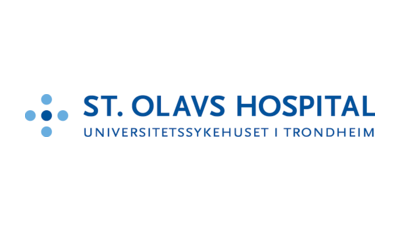
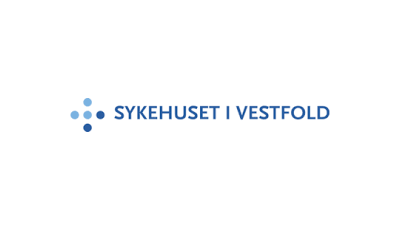
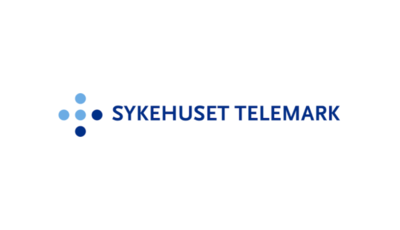
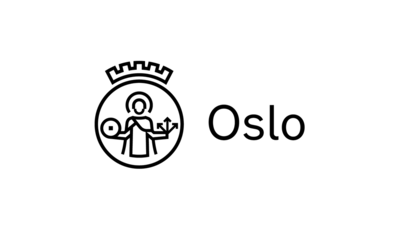
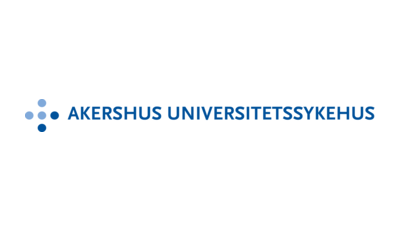
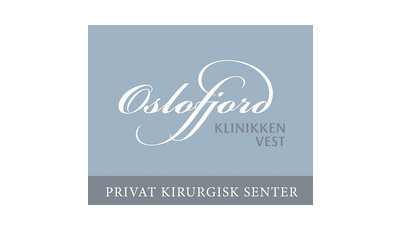

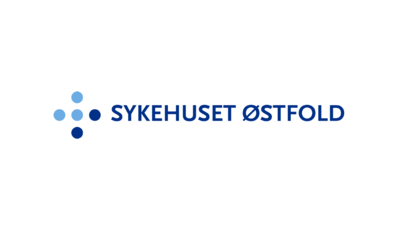
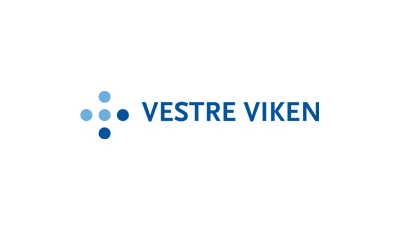
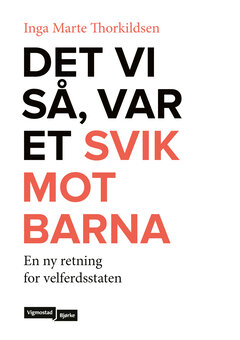
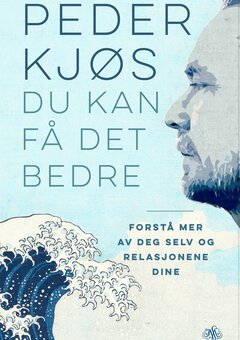
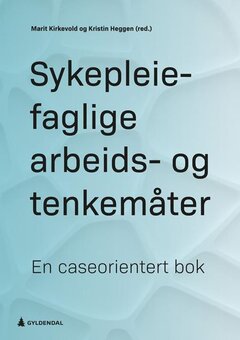
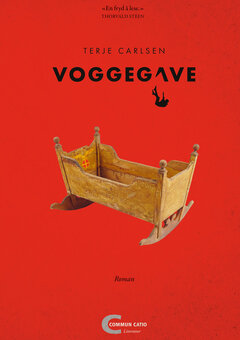
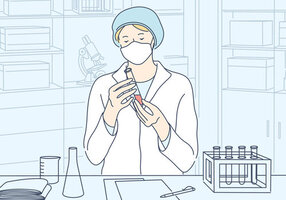

Comments